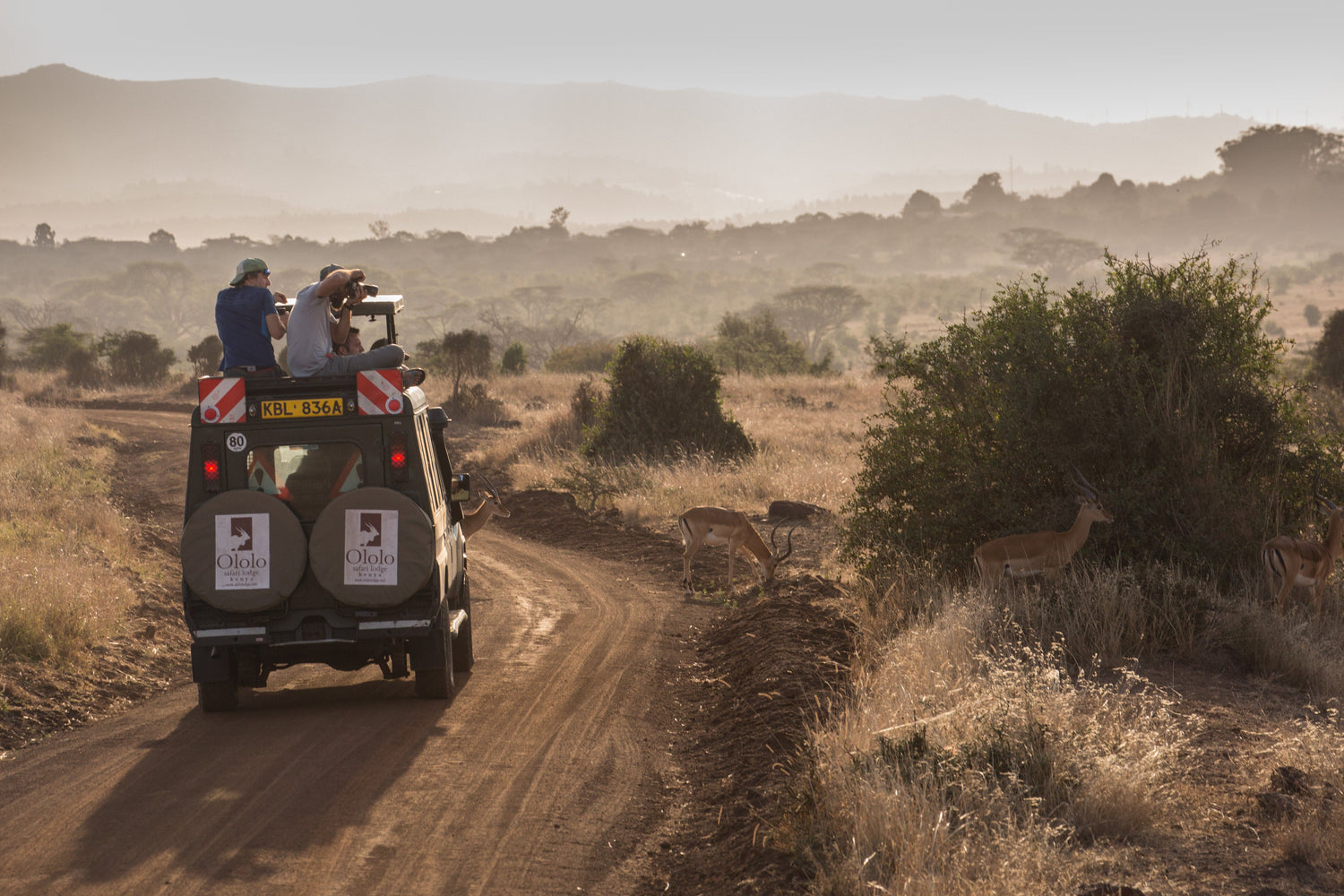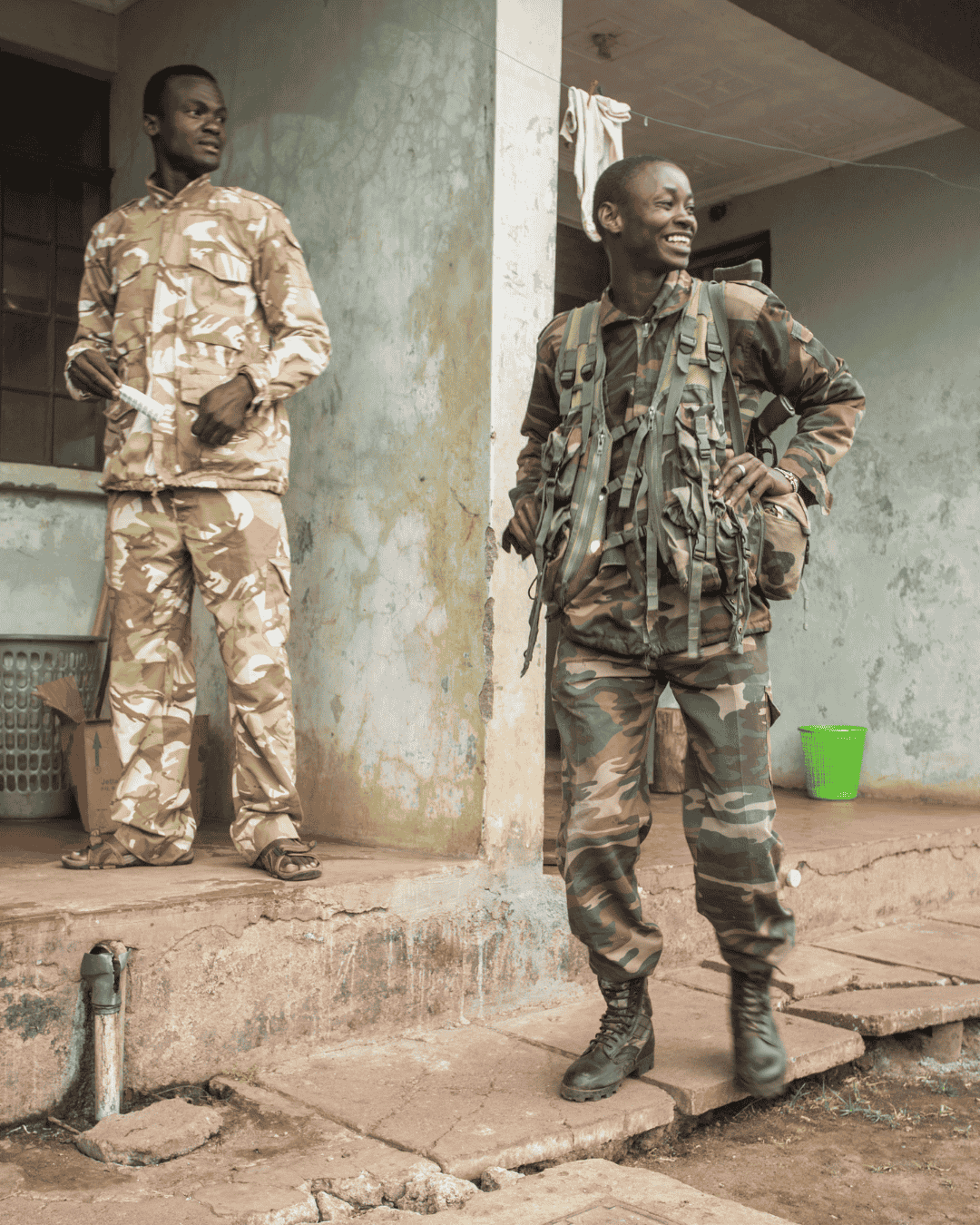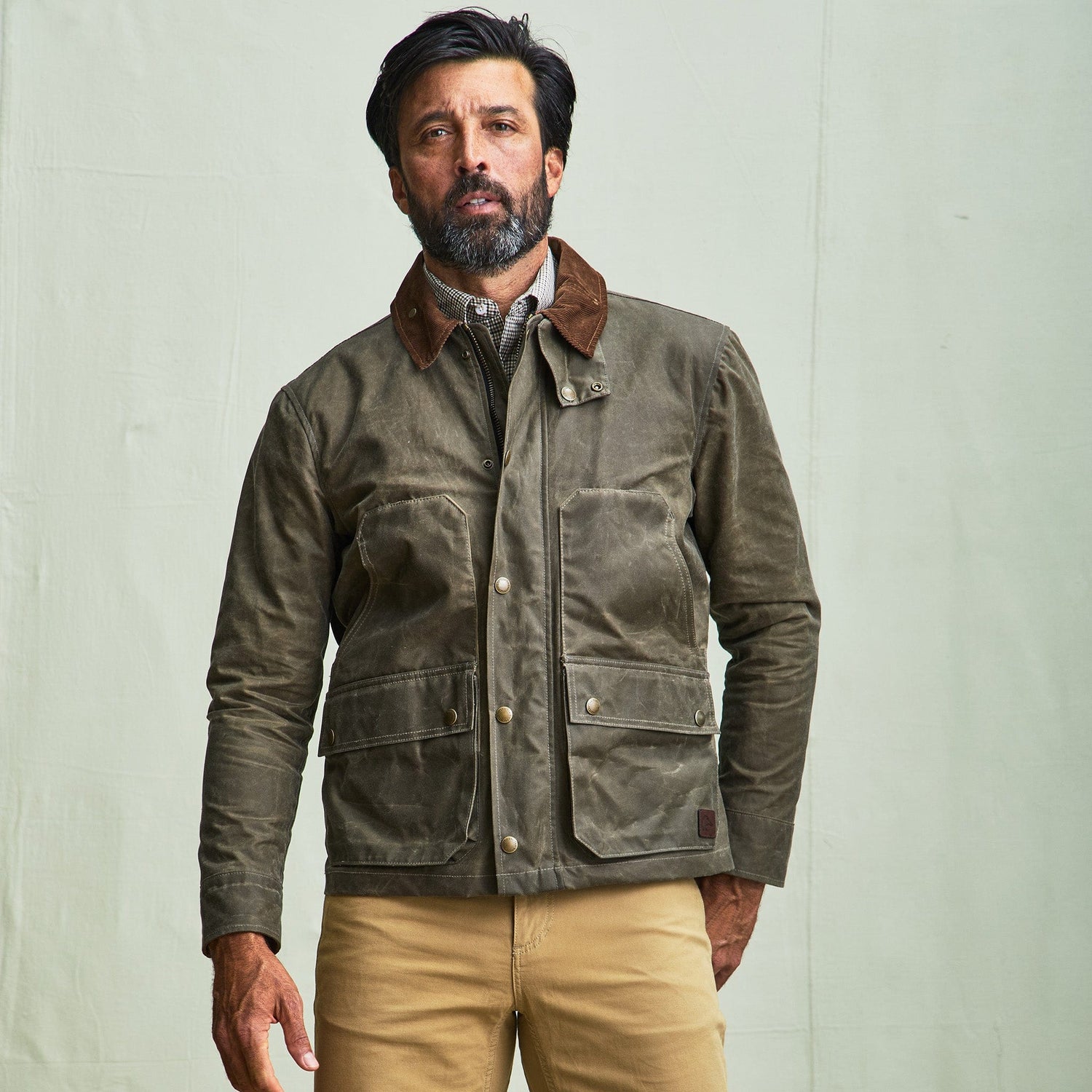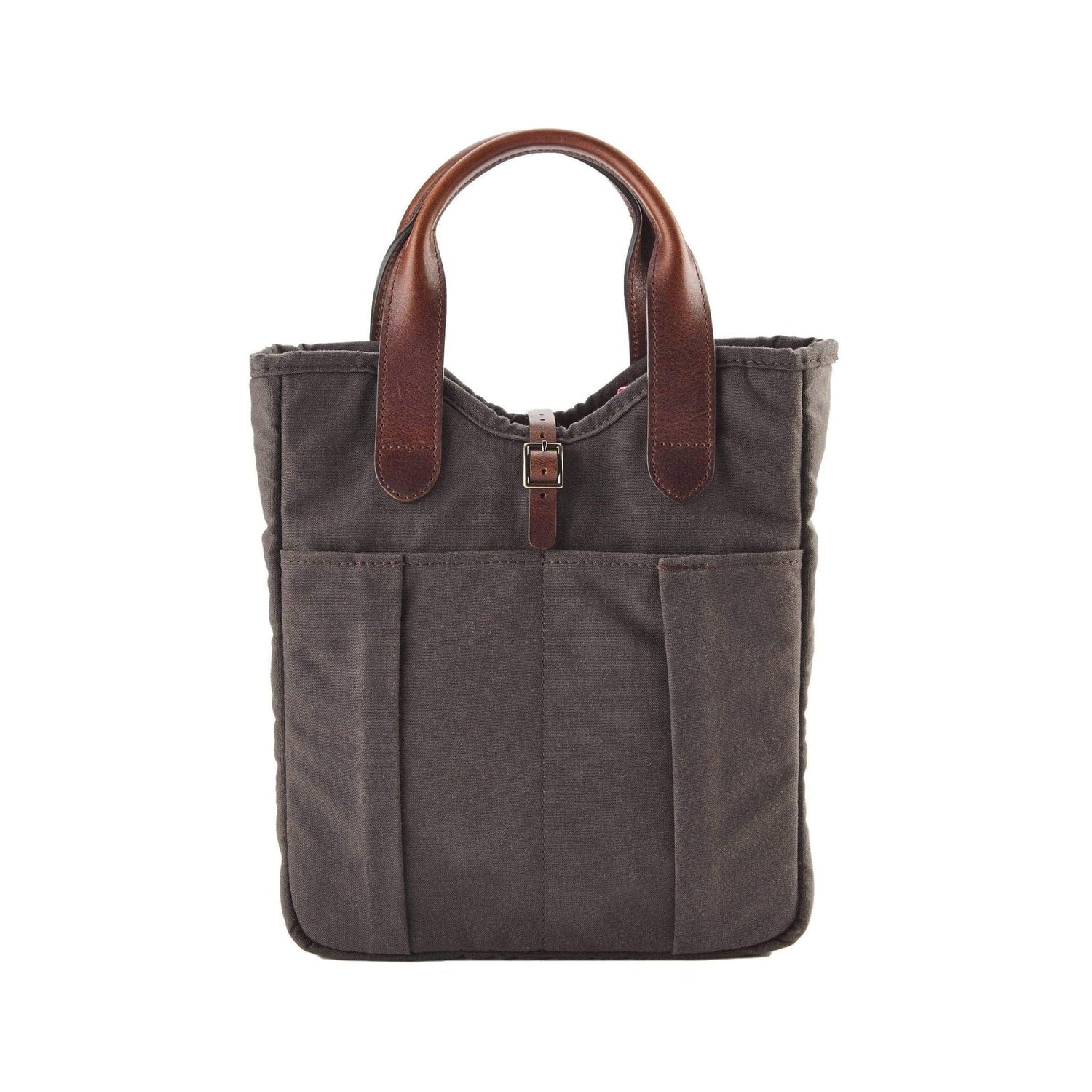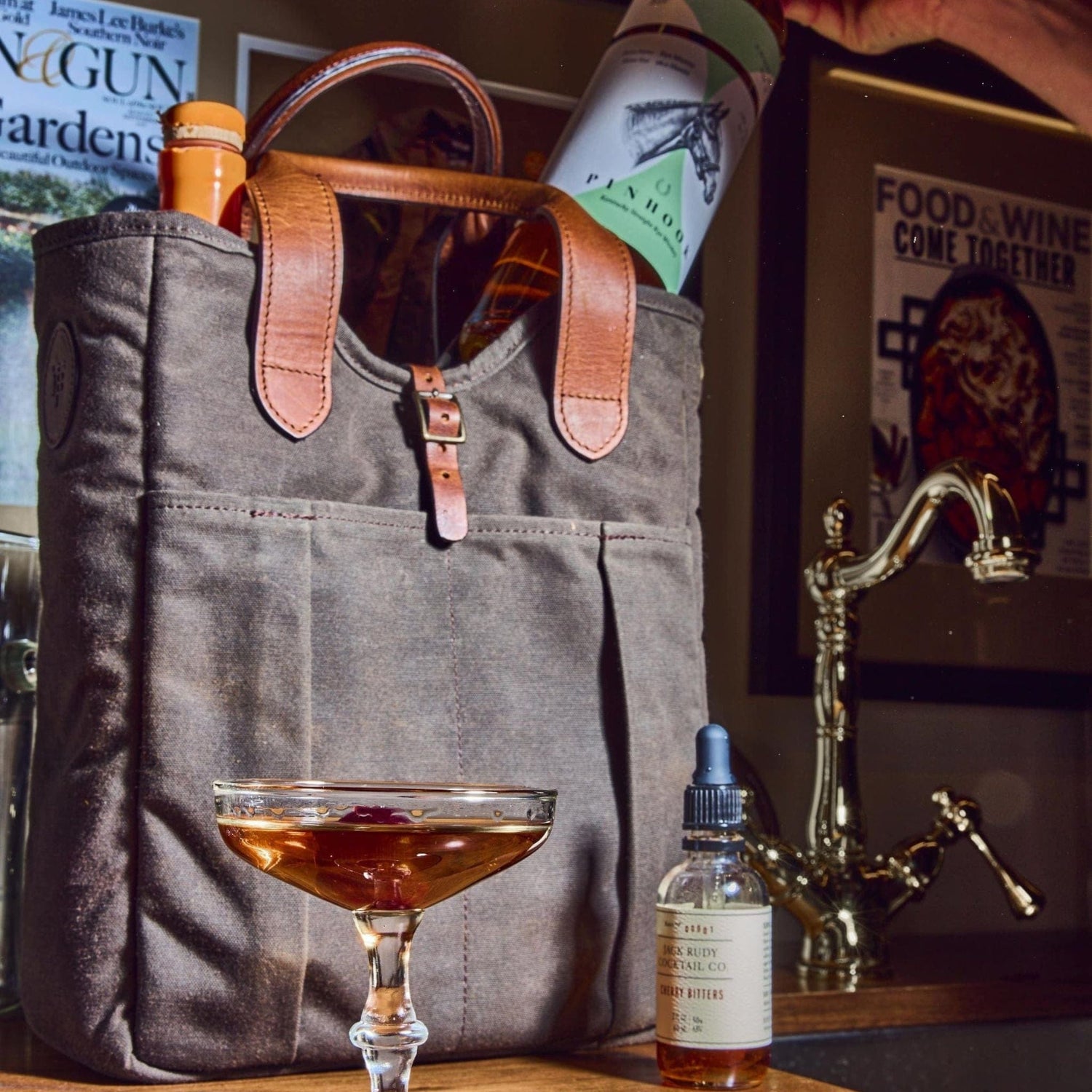The sun hung high overhead, burnished rays illuminating the waves of dust lifting as each old safari-rigged Land Cruiser rumbled past. Whenever someone walked from their transportation into the small, tin-roofed ranger station the same dust clouds arose, only on a smaller scale, as fluffy puffs of red dust instead of the surf-like drafts crated by the vehicles.
The dirt coated everything: my skin, my hair, my camera, my duffel. After five days camping in the African bush without a shower, it had all taken on a slightly reddish tinge. The camera I’d cleaned religiously. The rest of it… eh. The job wrapped that night, and I’d see if I could find a quick shower before boarding the long flight back to Dubai and then on to the U.S.; if nothing else I’d haunt an airport lounge in Jomo Kenyatta, Nairobi’s international airport, and wash off the red before the flight. For the moment I just grinned, content in my griminess, feeling the dirt on my face crackle a bit with the motion. This—dirt and dust and a memory card full of images in my camera with more yet to come—was Africa at her finest, and I was happy.
The first thing you learn about travel in third-world countries is you’ll have time to burn in strange places. Usually hot, dusty, and lacking any bathroom facilities. This time, it was waiting at a backside entrance to Nairobi National Park. My photography job documenting clean water projects several hours north in the Aberdare Mountains was complete, and the team had decided to add on a quick game drive before our flights out that night.
It was a good idea; a good way to close out our time in Kenya. Only now there was the issue of missing drivers for our round of the park; drivers who had the permits to get us inside this particular gate. We’d been waiting a few hours already, a gaggle of Americans and Europeans who had given up on finding any shade shortly after parking. Realizing it was going to take a while for anything to happen—if anything happened—we’d piled our duffel bags into a rough circle out of the way of the curious park guards. Someone dug out a deck of cards, and we quickly descended into a poker game. Hurry-up-and-wait mode, engaged.
Here's the thing. When you’ve been camping for many days, in-country for a couple of weeks, and are seriously low on sleep, there are more important things than money. Priorities shift; instead of our limited pocket money, we bet on the last few digestive biscuits, cracked and crumbled in their plastic sleeve in the nearly empty mess kit. Precious cargo.
The hours passed, fresh coats of dust settling over our little gaggle of players and our luggage. NGO workers, media, and an in-country attaché—we were a misfit lot; at least for the most part well-traveled enough to not fuss at the unexpected delay. If the drivers never showed, we’d bribe the owner of the truck who got us here to ferry us to the airport in a few hours.
Until then? There were digestives to be won.
The park guards got a little more curious. One asked if we needed help of some sort, and when we offered him one of the precious biscuits (more a pile of biscuit crumbles, but they were well-received regardless) he directed us to a small cook shack tucked away behind the ranger’s quarters which had food for sale.
Game to stretch out my sore back I took a wander; in short order finding the hut, which consisted of pallets and a tarped roof. The bibi inside smiled and, when I proffered a few hundred shillings (about two dollars U.S.), she gave a toothless smile, patted my dust-covered hand, and produced two mandazi. Essentially an African donut, the simple fried bread was shaped into rough triangles and served warm.
Not the ideal food for a hot day, perhaps, but it was food that wasn’t biscuit crumbles, and so I bought a handful to bring back to the poker game.
To no one’s surprise, the bits of bread became the next currency in the card game. Soon rock hyraxes, medium-sized mammals that look like the friendly version of that rat that used to live in your grandparents’ attic, appeared, lured by the smell of the food, and ventured bravely into our pile of duffels.
Their boldness earned them no food, but they seemed to enjoy watching the game regardless. Perhaps entertainment was in short supply at the ranger station.
An hour later, the hot sun slowly beginning to wane in the sky, the driver showed up. We packed up and speed-toured through the park, curious about what we could get done in the few hours before it was time to head back into civilization and the chaos of Jomo Kenyatta. In her final farewell gesture, Kenya didn’t disappoint, however, and we were greeted with the sight of a rhino and calf cutting through the brush with the Nairobi skyline in the background—a puzzling contrast which seemed to encapsulate my experiences in Africa so well. A mix of the ancient and the modern; hope for the future against the chaos of industry.
I never did manage to find that shower in the Nairobi airport, not after a herd of wildebeests blocked the park exit gate and cost us nearly an hour of transit time. Instead, I sprinted through the crowded airport halls, ignoring the looks my red-tinted, dusty figure brought, grinning internally at the images I knew were sitting on my memory card, waiting to be pulled off and onto the computer for editing.
About the Author
Jess McGlothlin sees her mission as a simple one: tell stories. Working as a freelance photographer and writer, she’s learned how to throw spears at coconuts in French Polynesia, dodge saltwater crocodiles in Cuba, stand-up paddleboard down Peruvian Amazon tributaries and eat all manner of unidentifiable food.

